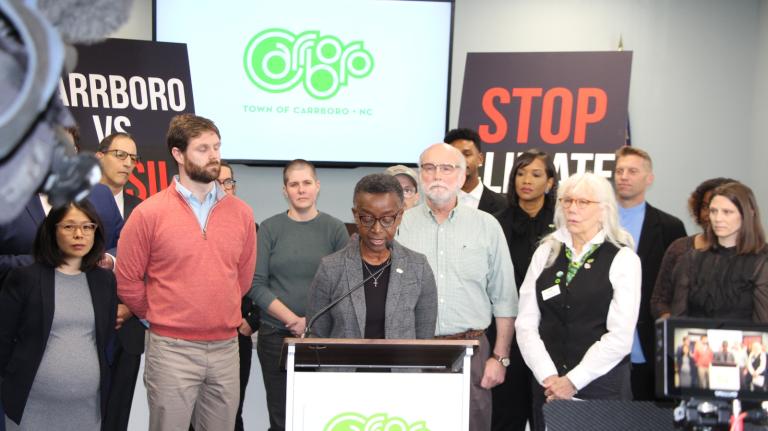William D. Nordhaus — economist, Yale professor, serious person — has taken to a serious publication, The New York Review of Books, to put the smackdown on climate skeptics.
The back story: Nordhaus has done working analysis of the economic impacts of implementing climate policies. In that awful Wall Street Journal op-ed we wrote about in January, a group of skeptics cited that work as proof that the country should do exactly nothing in the next 50 years to fight climate change. In his new article, Nordhaus approaches this and other claims with, as he says, “a cool head and a warm heart.” But eventually he just has to tell them “you know nothing of my work.”
Read and learn from all his responses to skeptics’ arguments, but for the juicy bits, skip to item six. Here is what Nordhaus has to say about skeptics’ interpretation of his work:
The sixteen scientists argue, citing my research, that economics does not support policies to slow climate change in the next half-century … I did the research and wrote the book on which they base their statement. The skeptics’ summary is based on poor analysis and on an incorrect reading of the results.
The first problem is an elementary mistake in economic analysis.
Oof. Because Nordhaus does such a good job of laying this out clearly (he is a professor, and by reputation a pretty good one!), it’s actually worth going over this elementary mistake. The skeptics’ problem is that they choose to look at benefit-cost ratio — “an incorrect criterion for selecting investments or policies,” Nordhaus says. Instead, the thing to look at is net benefits. Here’s why, in Nordhaus’ words:
Suppose we were thinking about two policies. Policy A has a small investment in abatement of CO2 emissions. It costs relatively little (say $1 billion) but has substantial benefits (say $10 billion), for a net benefit of $9 billion. Now compare this with a very effective and larger investment, Policy B. This second investment costs more (say $10 billion) but has substantial benefits (say $50 billion), for a net benefit of $40 billion. B is preferable because it has higher net benefits ($40 billion for B as compared with $9 for A), but A has a higher benefit-cost ratio (a ratio of 10 for A as compared with 5 for B). This example shows why we should, in designing the most effective policies, look at benefits minus costs, not benefits divided by costs.
Basically, climate skeptics are saying that we shouldn’t put policies in place now that could save us tons of money further down the road. Which, uh, sounds like a bad idea to us. But you don’t have to take our word for it — take William Nordhaus’. He’s working on what he describes as “a nontechnical book for people who would like to see how market-based approaches could be used to formulate policy on climate change,” so we can expect more of this type of smart analysis to help climate hawks make their case in the future.



